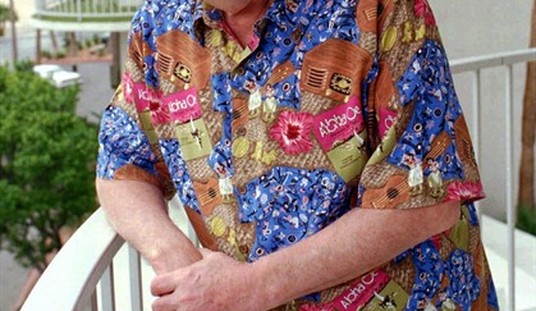Yes, I’m about to defend Dan Quayle. If you’re a long time reader of this blog, I estimate there’s a 30 percent chance you’re either going to say, “’bout time someone did!”, or a 70 percent chance you’ll think, “Ed’s finally lost it”. If you’re in the latter camp, stick this one out to the end, huh?
In the New Republic (found via Instapundit), William J. Stuntz compares Harriet Miers to Dan Quayle, as a sort of backhanded compliment:
Harriet Miers is to the Supreme Court what Dan Quayle was to the vice presidency: a sign of rising standards. And here’s the really good news: That proposition will hold even if, like Quayle, she winds up holding the office for which she was unwisely selected.
By historical standards, Quayle was a more-than-plausible pick. He had served twelve years on Capitol Hill, eight in the Senate and four in the House–only a single House term shy of John F. Kennedy’s record when he entered the White House, a fact that Quayle probably wishes he hadn’t mentioned to Lloyd Bentsen. It was a longer and better record than a number of Quayle’s predecessors. Spiro Agnew was a first-term governor of Maryland when Richard Nixon made him a national figure. Henry Wallace had served seven years as secretary of agriculture, after which he was vice president to a man on whom the world depended–FDR during World War II–and who barely survived his term. (We’re all lucky he did survive his term: Had Wallace filled Harry Truman’s shoes, Stalin might have gotten the communist Europe he always wanted.) Before becoming McKinley’s first vice president, Garret Hobart was, briefly, president of the New Jersey state Senate–not the best training for running a nation that was then extending its military power across the globe. Chester Arthur’s highest office had been collector of the port of New York, where he distributed spoils for the state Republican machine.
Quayle was surely better than that. And Quayle was not just a run-of-the-mill senator. He had a reputation for mastery of arms control and nuclear weaponry, subjects that were about to drop off the political radar but ones that dominated American foreign policy during much of the 1970s and ’80s. The elder George Bush could be excused for thinking he had made a better selection than, say, Dwight Eisenhower 36 years earlier: Eisenhower too tapped a young senator (Quayle was 41; Richard Nixon was 39) with a special interest in foreign affairs, one with only half of Quayle’s service in Congress.
Thankfully, standards change, sometimes for the better. American voters took a look at Quayle and concluded, rightly, that he was not ready for prime time: not–at least not yet–a plausible president. Politicians noticed. Every major-party vice-presidential candidate since Quayle was a plausible president: someone who, given the right circumstances, might get a major-party nomination for the top spot on the ticket. Not since the early years of the republic have we had such a long stretch of high-quality vice-presidential candidates. The voters seem to have decided that the historical practice of picking lightweight would-be vice presidents in order to satisfy some local constituency was no longer acceptable. American politics and government is healthier because of that judgment.
As for the last segment, something tells me that the prospect of Edwards stepping in an emergency is not an event that even a lot of Kerry voters would have looked forward to, especially after Dick Cheney filleted him during their debate. And certainly environmentalists would have feared the damage that that much concentrated use of Aqua Net would have caused to the Ozone layer.
But regarding Quayle himself and Miers, I think Stuntz has his argument slightly backwards. Pappa Bush picked Quayle for his ticket in part to placate conservatives who feared (rightly as things turned out) that Bush #41 would have been too liberal (in the entrenched big government sense of the word) a president to run as the successor to the Gipper. It was only because Quayle was instantly framed by the mainstream media (who had far more centralized power in ’88 than they do now; remember, this was prior to the World Wide Web, the Blogosphere, and Fox News, and Rush was just barely getting started as a national broadcaster) as a lightweight that Quayle became a pop culture joke. Dennis Miller dubbed him “The Rosetta Stone of Humor”, 13 years before he too, succumbed to the Dark Side of the Force. In ’88, Bush himself was too established a Washington player for the media to attack head-on, smashmouth style, but Quayle made too tempting a target for the liberal media to ignore.
But most hardcore conservatives liked Quayle, and many still do. If anything, the media’s loathing of him caused his supporters to rally around him even more. In contrast, the mainstream media didn’t frame public perception of Harriett Miers, the conservative alternative media did. In particular, it was National Review’s loathing of her (led by David Frum, after championing her in July–July 4th, oddly enough), that caused many–not all though–on the right to disagree with Bush’s pick.
There, I just defended Dan Quayle. And oddly enough, my fingers have yet to catch on fire. Any minute now, though…










Join the conversation as a VIP Member